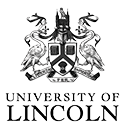We would like to invite you to a consultation meeting about a new project we are developing at the University of Lincoln to help school recognise and respond to the needs of children with SEND (diagnosed and undiagnosed). We are aiming to adapt an existing tool for assessing and highlighting a person’s cognitive strengths and […]
